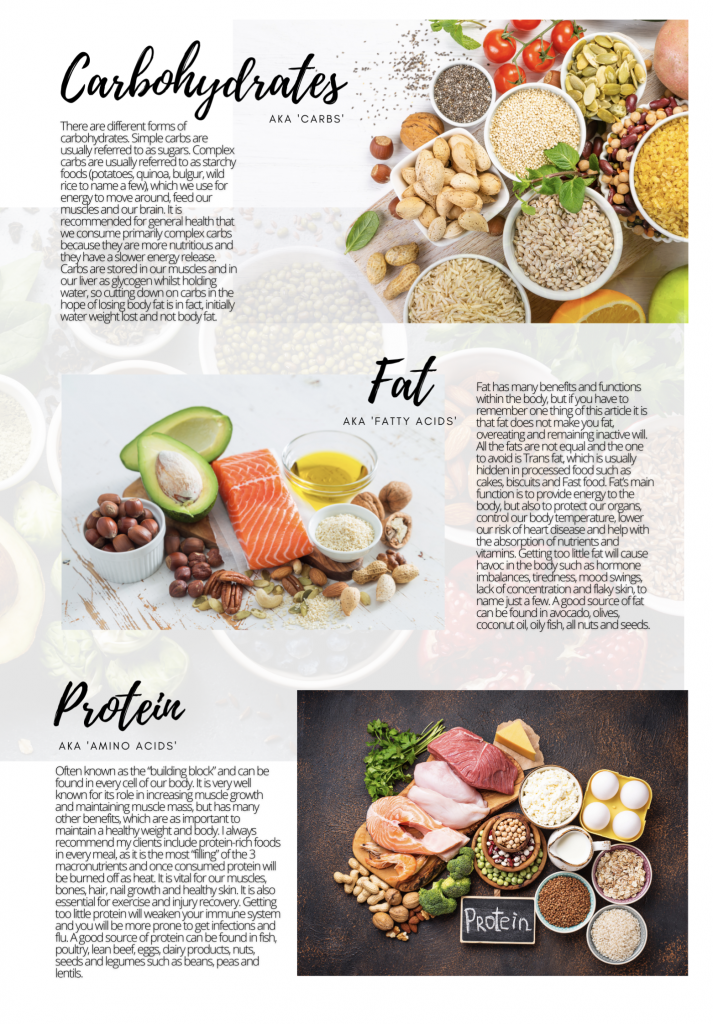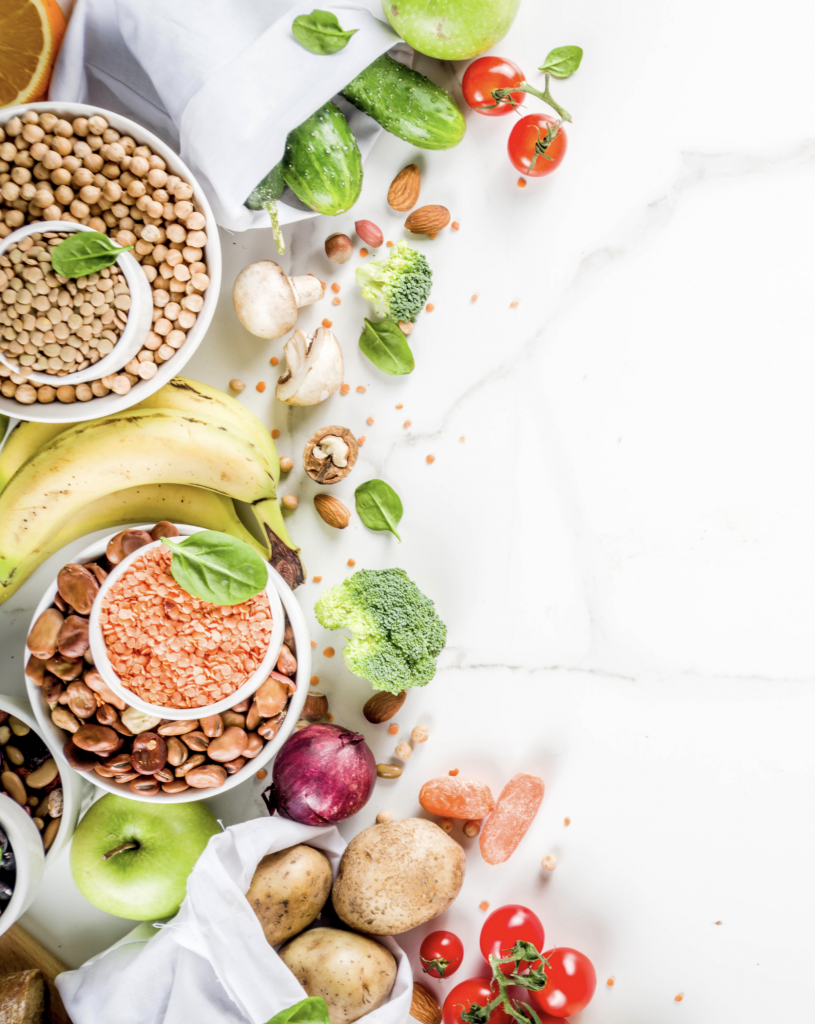June 2021: VOUZ Active: Skip to my Vouz!

Remember what you eat on a daily basis will have a direct impact on how you feel and how you move. Feeling energised comes from foods rich in carbohydrate, protein and fat. Combining all these 3 macronutrients with a physical activity, a good sleep pattern and good hydration are all essential for good health.
Tatiana Byrne

Nutrition
Nutrition is an extremely complex subject to understand and on top of that there is a lot of good and not so good advice on nutrition out there at the moment. My job as a Personal Trainer is to improve the overall health of my clients, without imposing a strict diet on them. My approach is to educate them on the principles of nutrition and how to prepare healthy meals full of good nutrients. This way they learn to fuel their bodies and increase their energy levels to be more active.
In this article, I will keep it very simple and will give you some basic information on nutrition. I’m going to introduce you to the 3 macronutrients essential for health and explain their roles within your body. These macronutrients are carbohydrates, fats and proteins.
Carbohydrates (aka carbs)
There are different forms of carbohydrates. Simple carbs are usually referred to as sugars. Complex carbs are usually referred to as starchy foods (potatoes, quinoa, bulgur, wild rice to name a few), which we use for energy to move around, feed our muscles and our brain. It is recommended for general health that we consume primarily complex carbs because they are more nutritious and they have a slower energy release. Carbs are stored in our muscles and in our liver as glycogen whilst holding water, so cutting down on carbs in the hope of losing body fat is in fact, initially water weight lost and not body fat.

Fat (aka fatty acids)
Fat has many benefits and functions within the body, but if you have to remember one thing of this article it is that fat does not make you fat, overeating and remaining inactive will. All the fats are not equal and the one to avoid is Trans fat, which is usually hidden in processed food such as cakes, biscuits and Fast food. Fat’s main function is to provide energy to the body, but also to protect our organs, control our body temperature, lower our risk of heart disease and help with the absorption of nutrients and vitamins. Getting too little fat will cause havoc in the body such as hormone imbalances, tiredness, mood swings, lack of concentration and flaky skin, to name just a few. A good source of fat can be found in avocado, olives, coconut oil, oily fish, all nuts and seeds.
Protein (aka amino acids)
Often known as the “building block” and can be found in every cell of our body. It is very well known for its role in increasing muscle growth and maintaining muscle mass, but has many other benefits, which are as important to maintain a healthy weight and body. I always recommend my clients include protein-rich foods in every meal, as it is the most “filling” of the 3 macronutrients and once consumed protein will be burned off as heat. It is vital for our muscles, bones, hair, nail growth and healthy skin. It is also essential for exercise and injury recovery. Getting too little protein will weaken your immune system and you will be more prone to get infections and flu. A good source of protein can be found in fish, poultry, lean beef, eggs, dairy products, nuts, seeds and legumes such as beans, peas and lentils.

Top tips for healthy eating
- Include a variety of fresh and colourful food on your plate
- Keep an eye on your portions to match your activity level
- Avoid processed food and deep fried food
- Reduce salt and sugar intake
- Chew your food and eat slowly
- Use spices and herbs over sauces